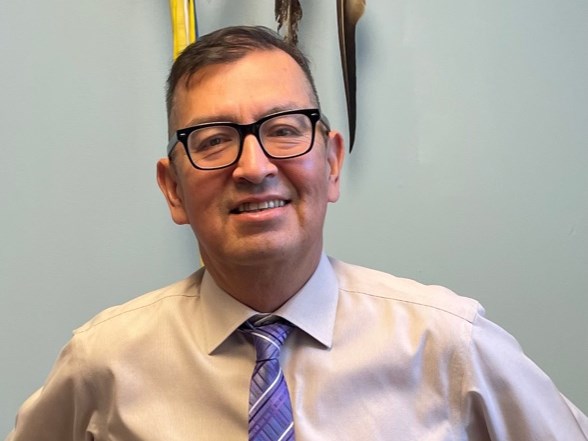Mississauga First Nation chief Bob Chiblow says his community is disappointed in the decision by the Canadian Nuclear Safety Commission to grant Cameco refinery a 10-year operating licence for its uranium refinery with no changes to its operating procedures.
The decision essentially ignores an opportunity to correct a historical lack of consultation that has cost his community dearly by denying it access to traditional lands said Chiblow.
It also ignores the United Nations Declaration on the Rights of Indigenous People, disregarding the principle of free, prior, and informed consent with peoples whose lands and territories are affected by a decision.
Canada’s nuclear safety regulator issued its decision on Feb. 17 after intervenor hearings were held in November last year and heard concerns raised by Mississauga First Nation on Cameco’s refinery and incinerator at its Blind River site.
Mississauga First Nation intervened during the licensing hearing on Nov. 24, 2021, and held a community engagement session on Nov. 4 in the lead-up to the event.
While the community welcomes the commission’s recognition in the decision of the “opportunity for Cameco to improve its level of dialogue and transparency with Mississauga First Nation,” Chiblow says the community leadership is disappointed in the outcome of the commission's decision and vows it will continue to call for the commission and Cameco to recognize and uphold Indigenous rights.
“During the hearing and in written comments, Mississauga First Nation had shared the history of the Blind River refinery location with the Canadian Nuclear Safety Commission, noting that when the facility was first developed there was no recognition of Indigenous rights nor an accompanying effort to consider impacts to Indigenous rights holders,” chief Chiblow said in an email to ElliotLakeToday this morning.
“The Mississagi Delta, where the refinery is located, was a traditional summering area and the site where many interactions occurred with European and French colonists. With this access to the river now blocked, Mississauga First Nation had asked the Canadian Nuclear Safety Commission to recognize its role, as a Crown agency, in ensuring its licensing process didn’t perpetuate historical wrongs," he wrote.
Chiblow says the decision is altogether silent on how the Canadian Nuclear Safety Commission considered the United Nations Declaration on the Rights of Indigenous People (UNDRIP), particularly Article 19 which says states shall consult and cooperate in good faith with the indigenous peoples concerned through their own representative institutions in order to obtain their free, prior and informed consent before adopting and implementing legislative or administrative measures that may affect them.
He said Mississauga First Nation will participate in the UNDRIP Act process that will lead to the development of an action plan resulting in the implementation of the UNDRIP Act.
"(The) UNDRIP Act is not about reconciliation efforts, but about righting historical wrongs,” he said. “Mississauga First Nation remains committed to finding ways to have more frequent discussions and to strengthen relationships with Cameco in a way that advances the many recommendations, such as the protection of our traditional territory, water, air, and all other recommendations laid out in our submission to the Canadian National Safety Commission."
“This land has been tied to our people since time immemorial and will forever be a part of Mississauga First Nation traditional territory. As Michi Saagiig/Aanishinaabe, we have been given the sacred responsibility to ensure Shkaagamik-Kwe (Mother Earth) is protected for the next seven generations," Chief Chiblow added. "This responsibility is a shared responsibility, and we must work together based on our Seven Grandfather Teachings, to build a reciprocal understanding that is respective of our inherent rights.”
For more information on Mississauga First Nation’s submission to the Canadian Nuclear Safety Commission go to this website.
For more information on Mississauga First Nation’s report on the community engagement session go to this website.
